Advertisement
'I Think I Deserve That Second Chance': Former Juvenile Lifers, Now Free, Try To Reenter Society
Resume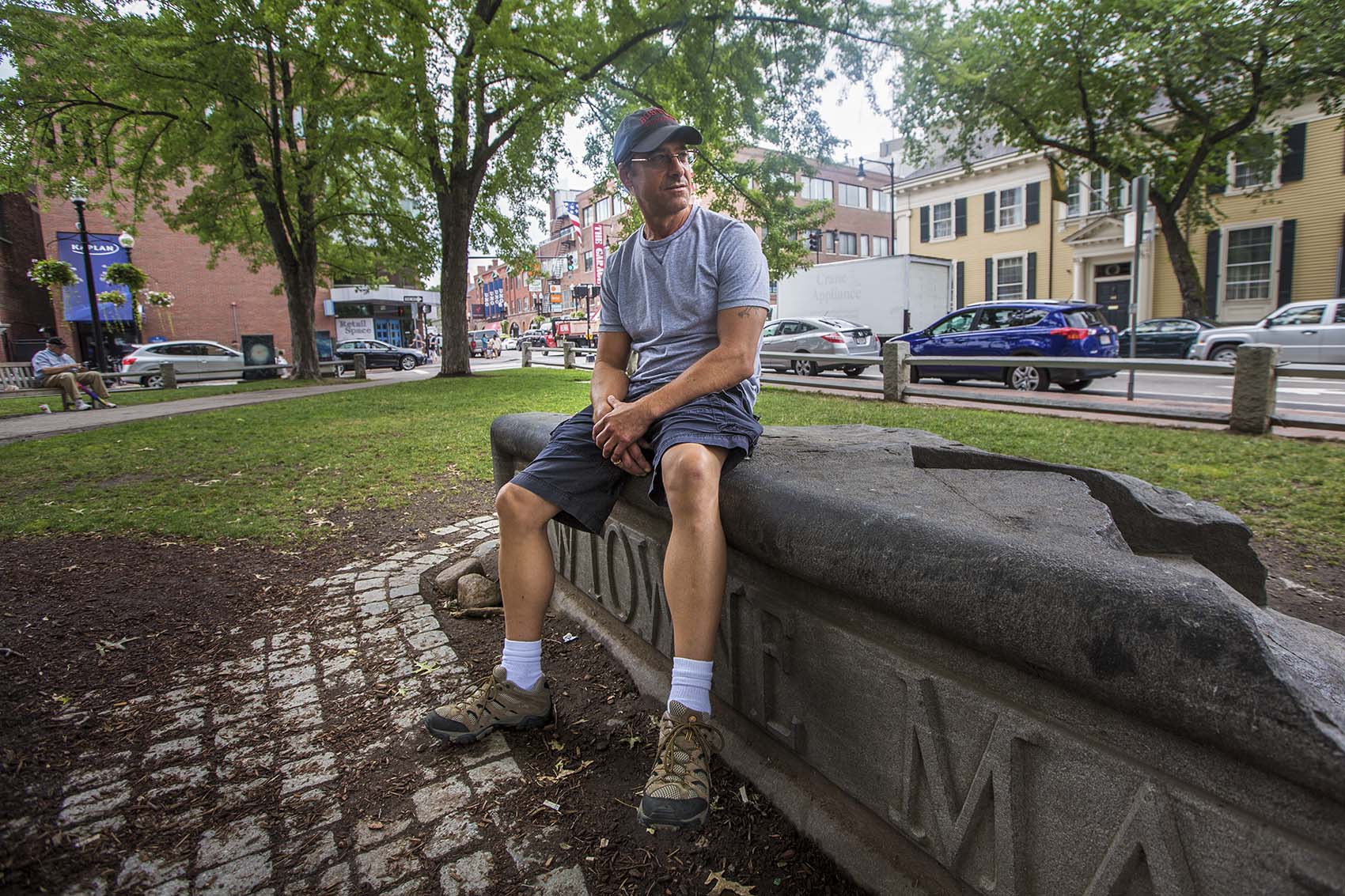
Greg Diatchenko spends a lot of time people watching in Harvard Square. Before starting his custodial job in the square, he often takes a few minutes to sit in a nearby park marveling at how the world has changed in the decades he was in prison.
"I love Harvard Square," he said one recent day. "It's so alive and it's nice to see people enjoying themselves. It's a happy atmosphere."
Diatchenko is used to a different atmosphere. He was in prison for 34 years and thought he was never going to leave. But after court rulings struck down mandatory life in prison without parole sentences for juvenile offenders, Diatchenko is now among 11 men granted parole in Massachusetts over the past two years.
"Everybody I meet they say, 'I never would have guessed you've been in prison, you don't look like a convict,' " Diatchenko said.
Now 52 years old, clean cut and soft spoken, it is hard to believe that at age 17, Diatchenko was sent to prison for life for fatally stabbing 55-year-old Thomas Wharf in 1981.
During his parole hearing, the board reviewed trial testimony indicating that Wharf propositioned Diatchenko and Diatchenko got into Wharf's car planning to rob him. When Diatchenko showed Wharf a knife, Wharf grabbed him and slammed on the car horn. Wharf was stabbed nine times.
"My crime was horrific -- I know that," Diatchenko said. "I know a lot of people don't want me out. They think that I should rot in prison for the rest of my life, but the parole board saw otherwise. They said, 'Let's give him a second chance.' I think I deserve that second chance," Diatchenko said.
The parole board unanimously voted to grant Diatchenko parole in October 2014, following a series of court rulings.
In 2012, the U.S. Supreme Court ruled that automatic sentences of life without parole for juveniles are unconstitutional. That left it up to the states to determine how to handle those inmates serving life sentences for crimes committed when they were under age 18. Diatchenko then filed a petition with the Massachusetts Supreme Judicial Court, challenging the constitutionality of state law requiring such sentences. In December 2013, the SJC struck down those sentences in a ruling named after Diatchenko.
"I'm not the same person that went in at 17 years old," he said in an interview. "I was young, I was stupid, I made terrible choices not just regarding my crime but prior to that: dropping out school, my alcoholism. I was more into drinking and getting high than studying and hitting the books."
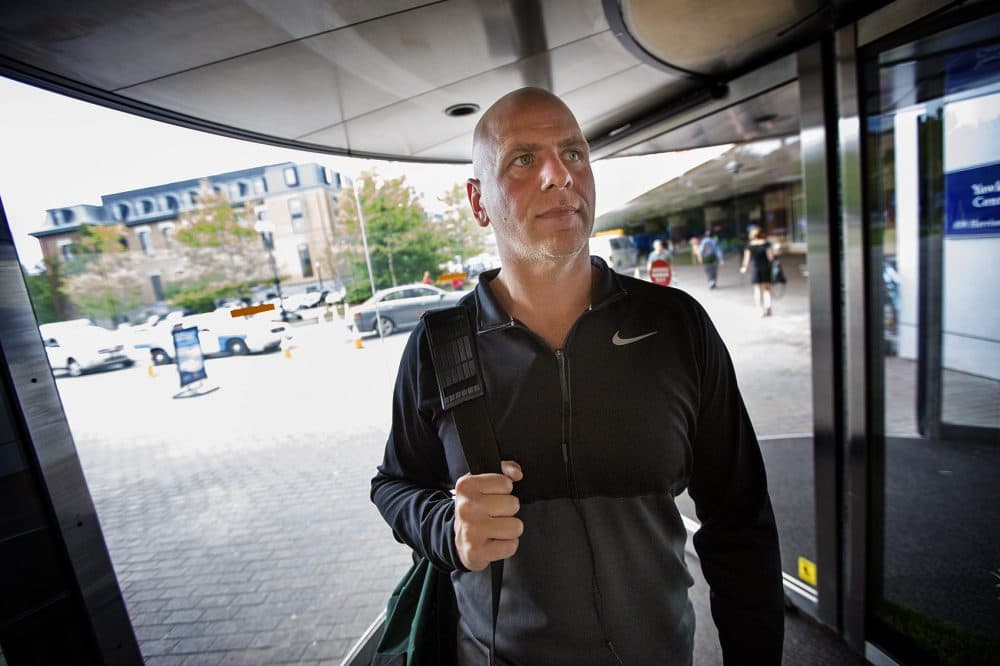
Forty-one-year-old Joe Donovan also said he was a "stupid kid." He was sent to prison when he was 17 for the killing of MIT student Yngve Raustein. Donovan admitted to throwing the first punch when he and two other teens walked by Raustein in Cambridge in 1992. But the then-15-year-old who fatally stabbed Raustein was sentenced in juvenile court and was released years ago. Because Donovan was tried as an adult, he was sentenced to life.
"I still am mad at myself for punching somebody that I should have never punched, and I can't really give you a good reason why I did it — to this day," Donovan said. "All I can say is I was a stupid kid. I wish that was a good enough reason but it really isn't and that's the only thing I can come up with -- I wasn't in my rational mind. I'm not in the mindset that I'm in now."
The parole board voted to grant Donovan parole in August 2014. After serving almost two years in lower security facilities, Donovan moved into a halfway house in Boston in May.
Donovan and Diatchenko have many similar stories about sharing the profound experience of growing up in prison and now navigating a world vastly different from the one they left as teenagers. They are both trying to become adept with the ubiquitous technological devices that they both believe have made it more difficult for people to connect.
"People are less social," Diatchneko said. "They don't sit and talk. It used to be that if you got on the bus or the train, you could strike up a conversation with strangers. Now everybody is just buried in their phones. I can't get over the rudeness."
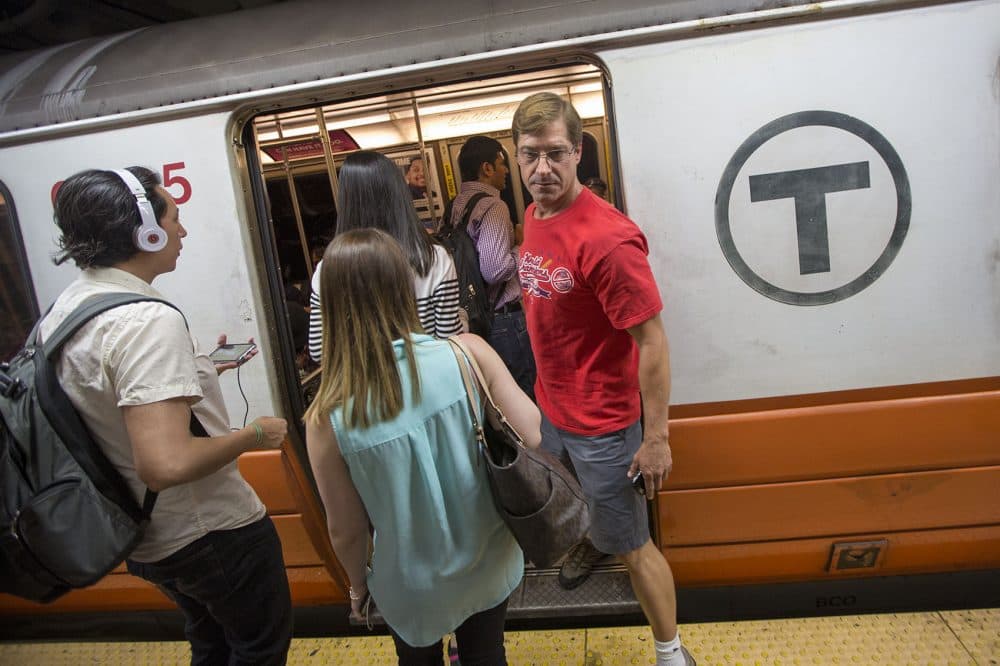
While their prison experiences started in a similar way, they describe very different ways in which they served their sentences. Both Diatchenko and Donovan said they began their "time on the inside" as arrogant kids trying to prove they were tough so as not to be taken advantage of by other inmates.
"I wasn't well behaved probably because of my anger," Diatchenko said. "If anyone asked me to do something, a guard, or anyone, I'd tell them to go to hell."
Donovan spent many years in solitary confinement and says he was always on guard because for him it was particularly difficult being a young inmate at MCI-Cedar Junction, formerly MCI-Walpole — which had a notorious reputation.
"I went to the worst prison in the state and I very quickly surmised what I had to do," Donovan said. "I made mistakes along the way, but for the most part I did it. I caught on pretty quick and lived the life I thought I had to live to survive in a long-term fashion there."
Eventually both men settled down. Donovan read voraciously and discovered his talent as an artist. Diatchenko completed high school, got a bachelor's degree, and worked as a plumber for more than two decades at MCI-Norfolk. Both of them said it's hard to imagine what kind of adults they would be had they not gone to prison, but they know they were indelibly marked by growing up in an institution that can be violent and harsh.
"Prison is violent -- if you want to get mixed up in that," Diatchenko said. "It's really no different than society. There are killings, robberies, drugs -- if you want them. But a person can do their time quietly. You just fall back and stay away from the trouble."
Staying out of trouble is a major concern for Donovan, who worries that his past could make it more likely that he could end up behind bars again. So as much as he'd like to go to Fenway Park, he's declined an invitation to a Red Sox game.
"There is just such a possibility of it turning in such a bad way, even in an innocent situation," he said. "I'm on paper as a murderer if they look it up. They're not going to look it up and see the background story and think, oh, he didn't really do the crime of murder. The way they're going to look at it is, he's a murderer out on parole."
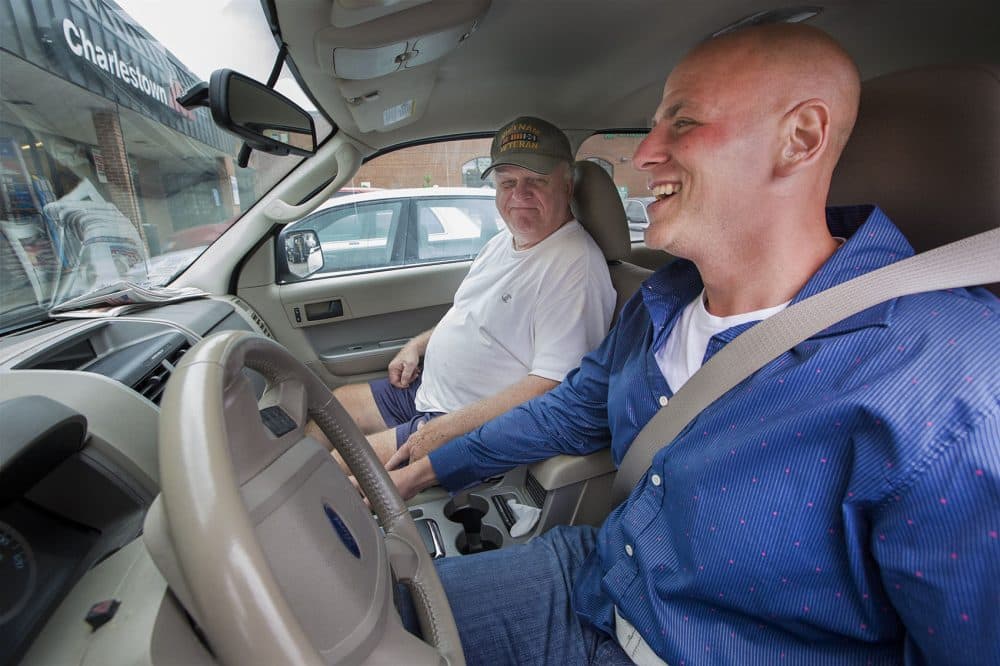
Donovan and Ditchenko are on parole for life, although Donovan is fighting that in court. Their parole conditions are somewhat similar: random drug and alcohol tests, regularly checking in with a parole officer, seeing a counselor once or twice a month, and paying monthly parole fees. Diatchenko has a curfew each night but lives in an apartment in Boston. Donovan is not sure how long he'll stay in the halfway house.
"I don't get too stressed out about much stuff because, hey, I don't have somebody coming at me with a knife today so it's a pretty good day," he said. "There is no door or cell clinking, everyone is not screaming all the time, I'm not sleeping on a metal cot. I'm happy. One thing my lawyer says when I say I have money issues or I tell him that it's hard to find a job, he says, 'Well, Joe, these are good problems to have.' So I guess my worst problem is a good problem to have."
One problem both men have shared in their few months of freedom is getting a job with a criminal record and a job they can get to because neither of them has ever learned to drive. Like Diatchenko, Donovan also works as a custodian; his job is at a family member's office building. Donovan is looking into becoming a union apprentice painter.
"When you're at the age I am, which is middle aged I guess, you don't have opportunities to make mistakes and screw-ups and find your way in life," Donovan said. "I really only have one shot at finding a career and not continuing to be a burden on my family."
Eventually Diatchenko hopes to work with at-risk youth.
"I'm starting all over again and building a resume," he said. "I'm grateful that I've been given that opportunity. And hopefully someday I can work with troubled kids in the community, helping with programs, keeping kids off the streets. I'd love to be able to give something back and prove to people that I'm not the monster that a lot of people made me out to be."
Both men also try not to constantly think about what they both call "that night."
Diatchenko said he tries to remember advice he got from a parole board member who told him if he dwelled on the murder he would not be able to move forward.
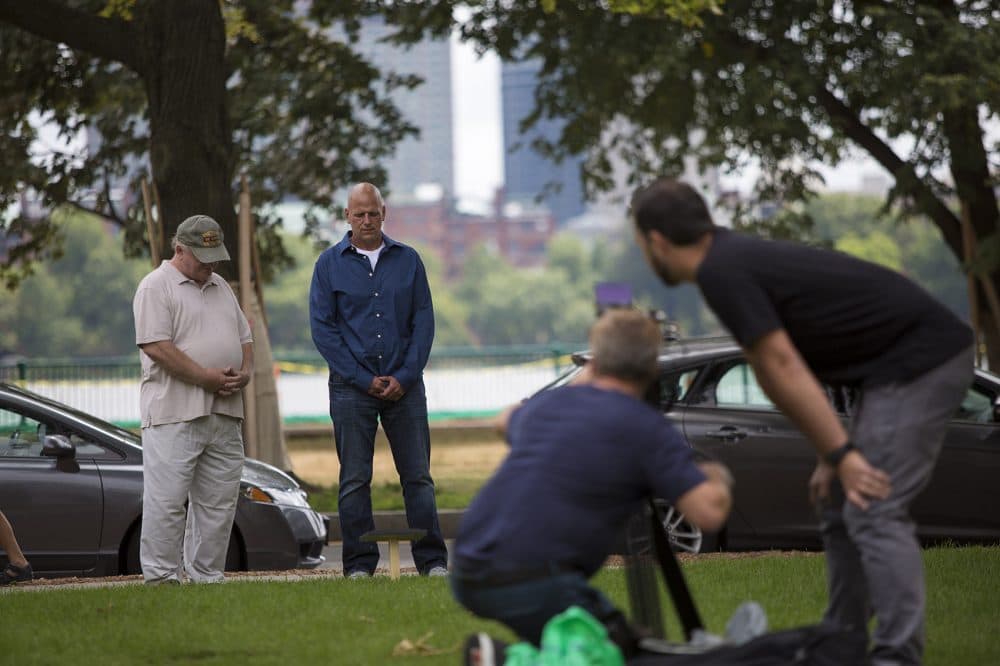
Donovan recently went to the site on Memorial Drive where Raustein was stabbed. A Norwegian TV station was filming a documentary about his story and the Raustein family saying Donovan has served enough time for the crime. Donovan somberly walked with his father to a plaque at the site for Raustein.
"I think about it a lot and being here like this makes you think about it more," Donovan said. "I really don't know what to call it. I don't know how to act. How do you act? This doesn't happen often in the course of human events."
His father, Joe Donovan Sr., said a prayer at the site.
"There is no right or wrong answer," Joe Sr. said. "One man is dead and another boy went away for a long time for being involved in it. The best thing Joey can do is dedicate his life to that family and to being a good person."
Donovan and Diatchenko say they understand they deserved to be punished for their crimes — but they point out that most inmates are released, even those who were never supposed to be. So they believe that if corrections departments put more of a focus on rehabilitation, everyone would benefit.
"This is to show the court and the people in society that look, we made a mistake when we were younger but we're out here now and we're part of your community," Diatchenko said. "We're working, we pay taxes, and we're your neighbors."
This article was originally published on September 07, 2016.
This segment aired on September 7, 2016.
